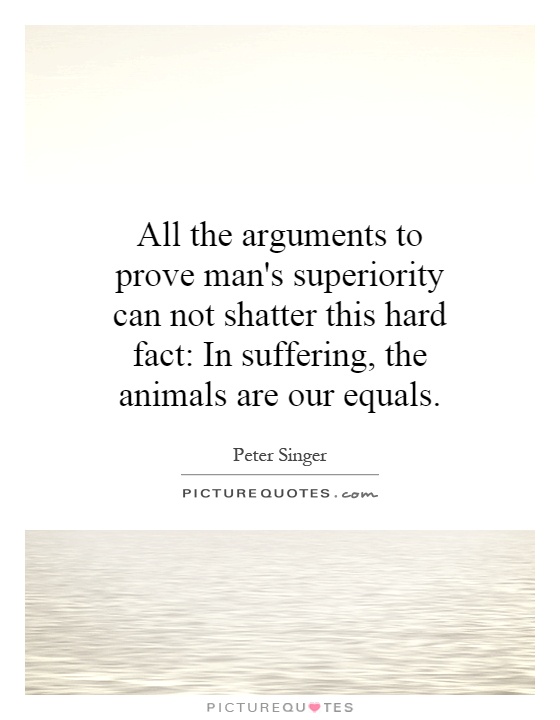All the arguments to prove man's superiority can not shatter this hard fact: In suffering, the animals are our equals

All the arguments to prove man's superiority can not shatter this hard fact: In suffering, the animals are our equals
Peter Singer, a prominent philosopher and animal rights advocate, has long argued that the suffering of animals is a moral issue that demands our attention and action. In his seminal work, "Animal Liberation," Singer makes a compelling case for the ethical treatment of animals, challenging the notion that humans are inherently superior to other species.The quote, "All the arguments to prove man's superiority can not shatter this hard fact: In suffering, the animals are our equals," encapsulates Singer's central thesis that the capacity to experience suffering is a fundamental characteristic that all sentient beings share. According to Singer, the ability to feel pain and pleasure is what ultimately matters when considering the moral status of animals.
Singer's argument is rooted in utilitarian ethics, which posits that the right action is the one that maximizes overall happiness and minimizes suffering. From this perspective, the suffering of animals is just as morally significant as the suffering of humans, and therefore deserves equal consideration. Singer challenges the traditional hierarchy that places humans above animals, arguing that such a hierarchy is arbitrary and unjustified.
In the context of Singer's work, the quote highlights the importance of recognizing the moral significance of animal suffering and the need to extend moral consideration to all sentient beings. By acknowledging that animals are capable of experiencing pain and suffering, we are compelled to reevaluate our treatment of them and consider the ethical implications of our actions.
Singer's advocacy for animal rights has had a profound impact on the way we think about our relationship with non-human animals. His work has inspired a growing movement towards greater compassion and respect for animals, challenging us to reconsider our attitudes and behaviors towards them.












 Friendship Quotes
Friendship Quotes Love Quotes
Love Quotes Life Quotes
Life Quotes Funny Quotes
Funny Quotes Motivational Quotes
Motivational Quotes Inspirational Quotes
Inspirational Quotes